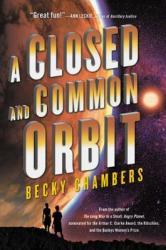
After the refreshing sci-fi The Long Way to a Small, Angry Planet , I was ready to follow the crew of the Wayfarer to their next adventure. Unfortunately, the sequel, A Closed and Common Orbit, decided to take a path more akin to The Godfather Part II (1974). Instead of following the main characters of the first story, this sequel delved into the new life of the AI now known as Sidra, while also interspersing a quasi-related prequel story of one of the new characters introduced in this book. Fortunately, these two stories were well paced against each other.
Even though I feel readers could pick up this book without having read The Long Way to a Small, Angry Planet, there are certainly a few details about the diverse races found in this universe left out of this book—probably for the sake of brevity. This didn’t necessarily detract from the enjoyment of A Closed and Common Orbit, but having that previous knowledge certainly helped to bring these alien creatures to life in my mind. Still, the main characters are basically humans, so the interactions with the aliens would be the main reason to know how these creatures communicate.
While this book is only tangentially related to the one that proceeded it in the series, the universe the author has created is solid enough to support a few more additional stories like the ones found here. With fewer characters to focus on in this book, A Closed and Common Orbit was able to dive deep into some pretty heavy topics, including child slavery and artificial intelligence. The writing still retains its casual dialogue style that genuinely helped bring these few characters to life. If anything, the author’s writing is what will keep me coming back to this series.
A mostly unrelated, but still expertly written sequel, I give A Closed and Common Orbit 4.0 stars out of 5.
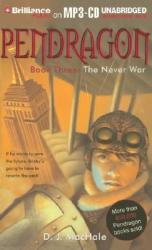
The Never War, by D. J. MacHale, is the third book in the Pendragon series. The series take place in a dystopian universe where multiple "territories" exist. This time, Bobby Pendragon, the main protagonist, is forced to set out to "First Earth" to protect New York City during the year 1937. The book's setting is amazing and cleverly crafted, as always, and the plot is intruiguing as well. The characters are also well developed and their identities start to mature after the first two books. The antagonist Saint Dane is also fascinating as his entire identity is shrouded in mystery.
Overall, the book is a great adventure novel and I would recommend it to anyone who is interested in books like the Harry Potter series.

The classic tale of mystery and horror is also one that is an extremely entertaining read. While it may not be the scariest novel ever, the mere ideas that it presents are certain to make one a bit uneasy. The plot is iconic: Victor Frankenstein, aspiring philosopher and scientist, creates a horrifying monster out of dead bodies and reanimates it from the dead. The monster then goes on a murderous rampage after being rejected by his very creator. The novel is very good, and the message it presents, of not overreaching for knowledge, is a timeless one. The only downside to this icon of horror is that some chapters tend to drag, and have little purpose. However, this is not a huge detriment since the rest of the novel is so entertaining. I would recommend to thriller or horror enthusiasts.
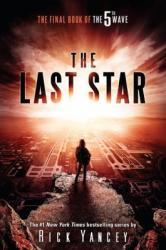
The Last Star by Rick Yancey was an enthralling close to The 5th Wave trilogy that left me in a trance of teardrops and the grip of a smile. Throughout the series, a group of survivors varying in age and personality banded together while a cruel species from another planet seized the Earth in determination
for solitude-- without care to the danger of the human life that already inhabited the planet. The book follows the minds, attitudes, and decisions of several characters, including Cassie Sullivan, her little brother, and her high school crush, along with other rogues that had survived the inhumane attacks of the inhuman. It was a race to get to the next page as the question of survival blared atop the ink and paper and as hate and wrongdoing and abandonment bloomed within the dying fields of love and innocence and hope. I thoroughly enjoyed this story because of how unfathomable yet relatable it was; the idea of aliens attacking Earth is very far from reality, but the way humans responded to the intruders in The Last Star was raw and familiar. I picked this book up because I had previously read the first two books of the series (The 5th Wave and The Infinite Sea) and appreciated the storyline of the movie, "The 5th Wave". The Last Star was at no point predictable; there were plot twists tucked into the spaces between chapters. Along with this, Rick Yancey's poetic script was remarkable throughout the story because of his beautiful descriptions of the action that allowed a new depth to be reached within the intricate plot. I would recommend this book to anyone who seeks adventure from the confines of a bedroom, as well as the understanding of the crude emotion that helps us to grow not as persons but as a people.
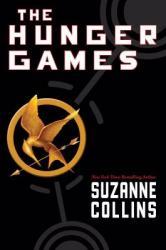
In "The Hunger Games", sixteen-year-old Katniss Everdeen volunteers to take her young sister's place in the cruel Hunger Games, an annual televised competition where children fight to the death until one remains. Although I'd watched all the movie adaptations before reading this book, I was still completely hooked. Everything about this book is absolutely fantastic -- the characters, the plot, the writing. The characters are complex and complicated, blurring the line between good and evil -- Katniss, in many ways, makes a phenomenal anti-hero. The plot moves quickly -- every chapter leaves on a cliffhanger, making it impossible to put the book down. The writing is succinct and gripping. The only criticism I could think of is that the beginning is a little slow, but it picks up very quickly from there. Everyone should read this book -- it's possibly one of the greatest books I've ever read. "The Hunger Games" is simply amazing.
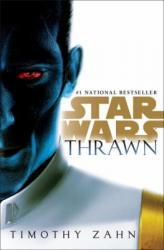
This book was amazing. It is a must-read for Si-Fi and Star Wars fans.
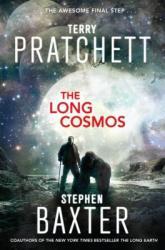
By the time I reached the end of the Long Earth series, I had a revelation. With the bounding conditions of the universe being that there are multiple worlds accessible via stepping and that no iron can pass between worlds, the ideas to explore these multiple worlds are almost endless. My revelation was that this series would have been better as an anthology of short stories from a collection of authors, instead of a handful of semi-disjointed novels that didn’t ever quite know what they were doing. The story never shined through, instead of feeling like a distracted three-year-old who wants to explore the potential of other worlds.
While I felt the series was starting to succeed in telling coherent and solid plots, this book removed that forward progress. When nearly one-third of the first part of the book seems to be comprised entirely of summary and recaps of the last four books, you know there’s not a lot of original ideas present in this one. And while minor tangents like the Johnny Shakespeare side-plot were amusing, they were loosely connected to the main plot at best. Even this main plot didn’t feel like it had enough time spent on it, as the main character of Joshua Valienté seemed to spend most of his time distracted on other worlds with unique trees instead of exploring the Long Cosmos that this book was supposed to be describing.
Even though this book was released after Terry Pratchett's death, it was clear he still had some of his influence on the plot and characters. Unfortunately, as was the case in the other books of the series, his contributions seemed to be fairly obvious, as they were the ones that didn’t quite fit in with everything else and just managed to be silly in an otherwise scientific exploration of new worlds.
The final book in a series that should have been an anthology, I give The Long Cosmos 2.5 stars out of 5.
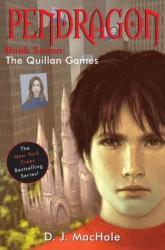
The Quillan Games, by D.J. MacHale, is a phenomenal read, as are all of the other Pendragon books. The Quillan Games is the seventh book in the Pendragon series, and I would recommend starting from book one if you want to fully understand what's going on. The overall story and plot are intricate but well demonstrated with subtle but important details. Both the story and plot are also elegantly woven with the theme of identity. Throughout all of this, Bobby and most of the characters are developed in a way where they also faced with this theme of identity, and adopt it as they progress through the story. The overall dystopian universe created in this book is also fascinating. Overall, I would recommend this book to anyone with a bit of time on their hands, as the series incorporates many elements that will keep you hooked for hours. Gr.9.
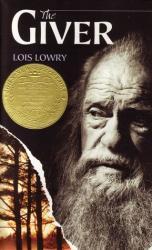
In the story "The Giver", the main character Jonas lives in what he thinks to be an utopia until he receives knowledge that only him and another person in the community hold. With this knowledge he realizes that his community lacks so much that things must change. Jonas decides to rebel against the guidelines with the other person in the community that holds the information he does which is The Giver. Jonas leaves the community by simply walking out of the borderlines and as a result the community receives the change Jonas and The Giver wanted. The book does end on a cliffhanger, which I did not like and what happens to Jonas and his escape partner is not definite. I read this book because it was what we were reading for the unit at my school in advanced language arts. I did not like the book. I didn't like the characters or the setting. "The Giver" is in a genre of books that I do not usually read and I think that is why I was not fond of it. The characters are not relatable in my opinion but to other people they might be. The plot of "The Giver" was disappointing. In general I just really didn't care for the book, but it wasn't the worst book I have read this year.
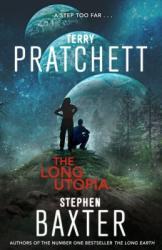
After the events that take place in The Long Mars , I was expecting the next book in the series, The Long Utopia, to be about the CEO of the Black Corporation and the settlement he established to help him live longer. Instead, I got a story that had little to no connection to the previous plots. That being said, at least there was a story with a projected conclusion instead of merely a series of random events that eventually led to the sudden destruction of some location (as had been the case up until now).
While I did appreciate some of the back-story for Joshua Valienté, there wasn’t anything in Joshua’s behavior or motivations in any of the previous books that indicated that he was even interested in learning about his past. I also was pleased that some of the “limitations” of this universe were brought back, or at least provided as a reminder to the reader. It honestly doesn’t make sense to me that these parallel worlds would have the kind of technology available to them without the use of iron. The fact that the material workarounds were never explained is probably the most frustrating part to me.
As I mentioned already, the stronger story in this book helped keep me invested in the characters, not only as they tried to figure out what was happening, but as they tried to determine how to stop it. Unfortunately, none of the consequences in this universe seem to hold any weight. Lobsang can “die,” but there are still plenty other versions of him around. The Next can be mostly exterminated, but then the next book just glosses over the attempted genocide. In the end, though, I can’t honestly tell you what the titular “Utopia” of this book was, and that’s disappointing.
A slightly above-average chapter in the Long Earth series, I give The Long Utopia 3.0 stars out of 5.
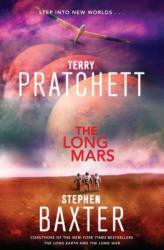
While the previous two entries in this series seemed to be disjointed in their writing styles, The Long Mars seemed to iron out some of these discrepancies . . . finally. In The Long Earth and The Long War , you could almost pinpoint the sections that Terry Pratchett wrote and the sections primarily written by Stephen Baxter. By The Long Mars, there are still a few moments of Terry Pratchett’s goofiness, but they are few and far between. Consequently, the narrative of The Long Mars seemed a lot more consistent than its predecessors.
Of course, this doesn’t necessarily mean that The Long Mars is absent of problems. While there was plenty of exploration of these parallel universes, the ones that were deemed necessary enough to describe didn’t add anything to the plot. In fact, I felt like this book could have been much shorter if these thought experiments that explored how parallel universes would function were cut out entirely. If these momentary breaks in the action were tied to critical moments or conflicts, then I could see their necessity. As they are right now, you could remove almost every one of them and still have the same basic story.
The scientist in me did like the broader examination of what to do with multiple universes, like easily visiting Mars. These concepts were touched on in the previous books, but now they felt a lot more fleshed out. Similarly, I felt like the characters were a lot more interesting, especially the dynamic between Sally and her father. Sure, there were probably a few too many plot lines to follow, but at least I cared about the characters now. I’m also not sure if the ending was supposed to mimic its predecessors, as that was one of my frustrations with The Long War: an almost identical ending to The Long Earth.
A significant improvement in the Long Earth series, I give The Long Mars 3.5 stars out of 5.
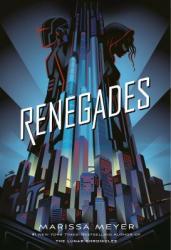
The first book in the series from the author of the popular Cinder series. Renegade takes place in a futuristic world where some humans have gained superpowers. The story takes as on a journey through two different perspectives. Nova is known as a villain to other people, but to Nova the only bad guys are the heroes. Adrian lives in the shadow of his hero fathers and believes villains must be put in their place. The two meet both using secrete identity's and both heir worlds are changed forever.
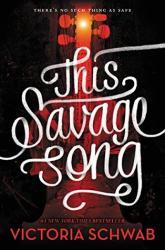
"Corsai, Corsai, tooth and claw, shadow and bone will eat you raw.
Malchai, Malchai, sharp and sly, smile and bite and drink you dry. Sunai, Sunai, eyes like coal, sing you a song and steal your soul. Monsters, monsters, big and small, they're gonna come and eat you all." This poem/song describes the monsters that inhabit the city of Verity in this futuristic, distopian world. "This Savage Song" is an excellent book for readers who love a good mystery and slight thriller. In a world gone completely rotten, monsters have risen up from people's sins. The two main characters, Kate Harker and August Flynn are on opposite sides of a war where no one truly wins. Kate wants to be as ruthless as her tyrannical father, while August just wants to be human, when he's really not. A study of humanity and one's willingness to survive, Victoria Schwab's "This Savage Song" is sure to engage any reader.
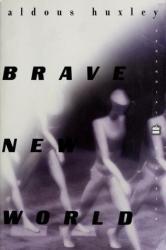
One of the first dystopian novels, Brave New World follows an outsider as he tries to navigate the workings of a society that has been developed into a utopia by using conditioning and genetic modification. Originally excited to visit this 'brave new world', Savage becomes increasingly distraught by the lack of humanity exhibited by its inhabitants.
I liked this book better than 1984, mostly because 1984 had some 'preachy' sections and this one had fewer and had a more interesting plot line to me. While 1984 was violent, Brave New World was promiscuous. Both books eschewed solitude for constant interaction, 1984 being involuntary, Brave New World, voluntary. Both books are worth reading.
One reason Brave New World is fascinating is because of the way they control the birth and childhood of the population by conditioning and genetics. Copulation is as common as a handshake and soma restores all to rights. All this was written in the 30s! Aldous Huxley is the man!
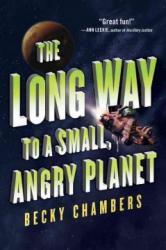
One of the biggest qualms I have with a lot of modern science fiction is that it’s not nearly imaginative enough. I believe most of this stems from the fact that modern sci-fi authors were influenced by franchises like Star Trek and Star Wars, where even the aliens are basically humanoids with different skin color. In The Long Way to a Small, Angry Planet, author Becky Chambers takes a great leap forward for sci-fi by exploring what it would be like to work on a spaceship with a variety of different species. Needless to say, there are plenty of “cultural” adaptations that one would need to make in such a situation.
Unfortunately, because the characters are so interesting, the main plot takes a back seat for the majority of the book. Instead, the reader is treated to a series of almost “episodic” moments between the crew that act as excellent exposition, but take up most of the space of the book due to the size of the crew. Aside from that, there were a few crew members that initially didn’t stand out, and it took me a while to realize they were two different people. I also can see how Kizzy could come across as “cute and energetic,” but I found her mostly to be childish, obnoxious, and annoying (she got on my introvert nerves).
In the end, the inclusion of lots of aliens with different cultures allowed for a simple way to include more non-traditional relationships in the book as well. With plenty of LGBTQ+ referenced in this book, none of it came off as judgmental, but it will still be a little jarring for people who aren’t used to reading books with these themes included in them. Still, the heart of science fiction is exploring the new and unknown, which this book does excellently. Fans of Firefly will probably be the most satisfied with this series, as the eclectic crew presented here seems to mirror that show’s charm and personality.
A sci-fi book that finally includes aliens that aren’t so human, I give The Long Way to a Small, Angry Planet 4.0 stars out of 5.
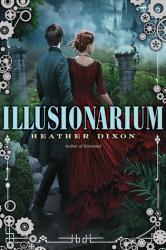
In an alternative version of 1800s England, Jonathan and his scientist father are tasked with ending a deadly disease that has swept the land and infected thousands -- including the Queen herself. Their research is aided by a strange substance known as fantillium -- which allows the user to create anything before their eyes -- but when Jonathan discovers a world beyond theirs, fueled by fantillium, things take a turn for the worse....
This book hooked me from the start. I was instantly pulled into this interesting world and couldn't put it down for two hundred pages.
Unfortunately, around the two hundred page mark was when it began to slightly lose my interest. The plot began to take a slightly weird turn that I didn't know if I liked. Thankfully, things picked up from there. The characters were complex and well crafted -- I especially thought Lockwood (an anti-hero-like character in the book) was the most interesting. The world-building was fantastic and multi-layered. I would recommend this book to fans of "Harry Potter" for its imaginative magical world. An excellent read.
Grade: 12
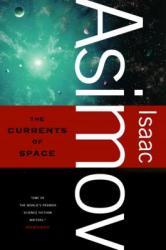
For the first time, it seems that I’m reading a series backward. Of course, it was also written a bit backward, which explains why I’m going about it this way. While Pebble in the Sky was the first book in this series, it actually comes at the end of the narrative. A year later, Isaac Asimov would write the prequel, The Stars, Like Dust , which was then followed by a book that fit between the two. The Currents of Space is that book. Fortunately, there isn’t much tying this book to Pebble in the Sky, other than the universal setting for the events to take place.
It is encouraging that Asimov’s writing was able to improve in two short years between his first ever novel and this follow-on prequel. The Currents of Space has a distinct main character, apparent conflict, and well-timed plot revelations. The focus of this book helps to describe a somewhat interesting and thrilling scenario, even if it’s peppered with lots of clichés that are still present to this day. The “amnesiac expert” is by no means a new or unique storytelling device by today’s standards, but it may have been interesting back in the 1950’s.
Despite the improvement in Asimov’s writing, there were still a few choices that I felt were perhaps due to the weaknesses in Pebble in the Sky. In his first book, it was difficult to grasp everything that was happening. In The Currents of Space, one of the characters does an exposition dump that amounts to a recap of the first two-thirds of the book. While there was some added info to this information that led to the satisfying conclusion of the plot, it still seemed unnecessary if the reader was paying attention up to that point.
An improvement over his previous work in the series, I give The Currents of Space 3.0 stars out of 5.
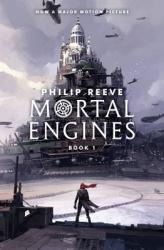
Tom, a lowly museum apprentice, is suddenly and literally thrown out of the elevated, traction city of London into a world of intrigue, mortal danger, conniving pirates and robot-like Stalkers who are programmed to kill him. He has to endure travelling with a cranky, would-be assassin and come to grips with his own doubt about what his city really is. First published in 2001, Mortal Engines, by Philip Reeve, is a classic Steam Punk novel that will keep readers 9 - 90 on the edge of their seats turning pages to find out what catastrophy will occur next in poor Tom's life. This is the first book in a series.
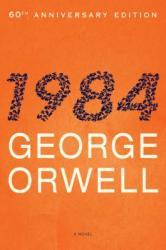
1984 is a timeless classic about a dystopian future where war is constant and you are constantly watched and carefully studied by an ominous force called the Thought Police. Everyone is expected to completely devote themselves to The Party (the ruling government) and believe everything they say. If the Thought Police detects the slightest amount of dissonance in a citizen, they disappear and, according to The Party, cease to exist - and never existed. One party member, Winston Smith, has been rebelling against the Party in thought only for years. Now, he finally gets enough courage to stand up for what's right. Will Winston be able to stop the tyrannical rule of The Party or will it all be in vain? Find out in 1984!
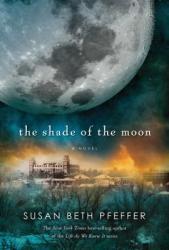
The Shade of the Moon is the final book in the series Life as we Knew it. This story fallows the perspective of the youngest brother living in a secure location until something bad happens. This book is sad at some parts but you kind of have to read it to complete the series. You have to read the first three books of the series before you read this one. Again some parts are sad but it rapped up the story well in the end. Would recommend if you have read the other books.


